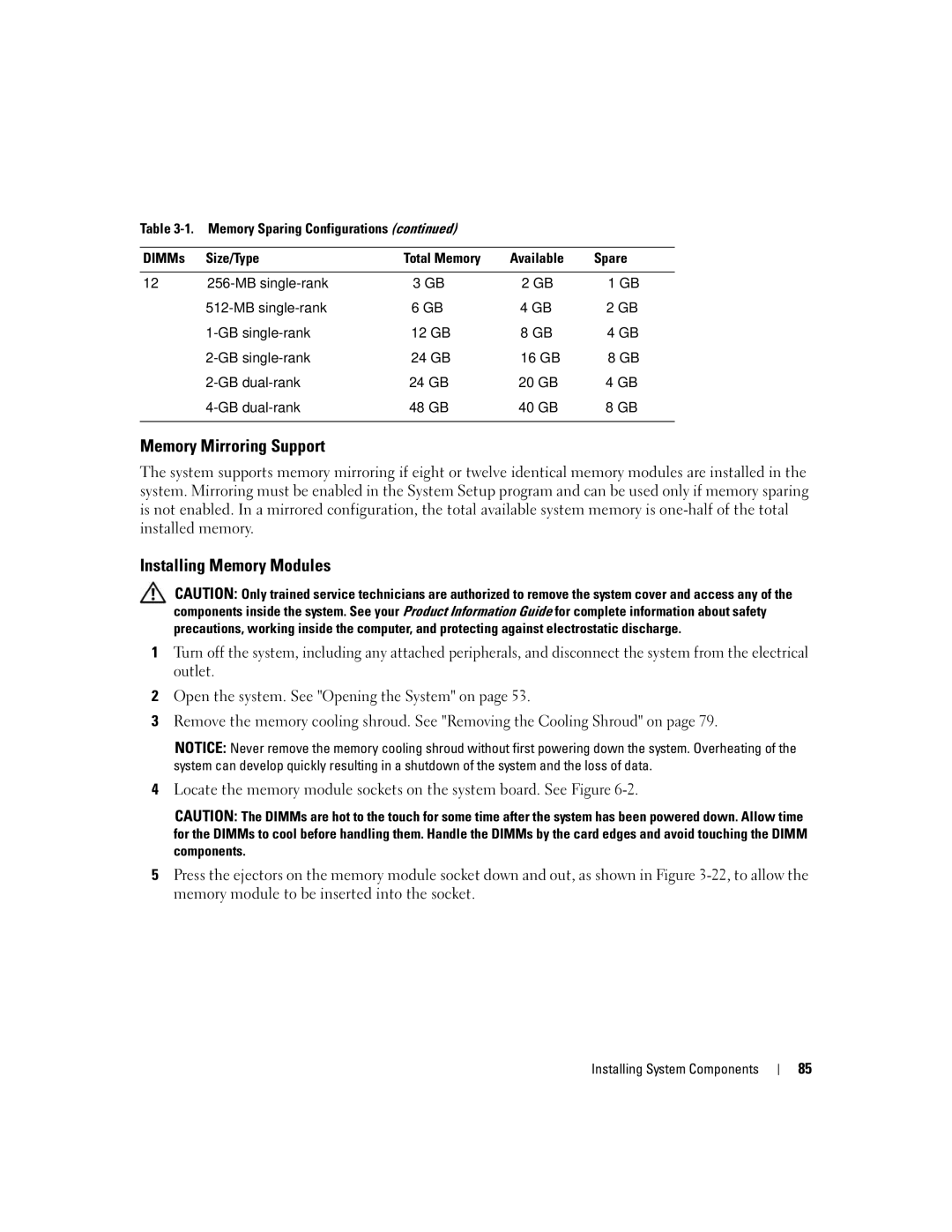
Table
DIMMs | Size/Type | Total Memory | Available | Spare |
|
|
|
|
|
12 | 3 GB | 2 GB | 1 GB | |
| 6 GB | 4 GB | 2 GB | |
| 12 GB | 8 GB | 4 GB | |
| 24 GB | 16 GB | 8 GB | |
| 24 GB | 20 GB | 4 GB | |
| 48 GB | 40 GB | 8 GB | |
|
|
|
|
|
Memory Mirroring Support
The system supports memory mirroring if eight or twelve identical memory modules are installed in the system. Mirroring must be enabled in the System Setup program and can be used only if memory sparing is not enabled. In a mirrored configuration, the total available system memory is
Installing Memory Modules
CAUTION: Only trained service technicians are authorized to remove the system cover and access any of the components inside the system. See your Product Information Guide for complete information about safety precautions, working inside the computer, and protecting against electrostatic discharge.
1Turn off the system, including any attached peripherals, and disconnect the system from the electrical outlet.
2Open the system. See "Opening the System" on page 53.
3Remove the memory cooling shroud. See "Removing the Cooling Shroud" on page 79.
NOTICE: Never remove the memory cooling shroud without first powering down the system. Overheating of the system can develop quickly resulting in a shutdown of the system and the loss of data.
4Locate the memory module sockets on the system board. See Figure
CAUTION: The DIMMs are hot to the touch for some time after the system has been powered down. Allow time for the DIMMs to cool before handling them. Handle the DIMMs by the card edges and avoid touching the DIMM components.
5Press the ejectors on the memory module socket down and out, as shown in Figure
Installing System Components
85
